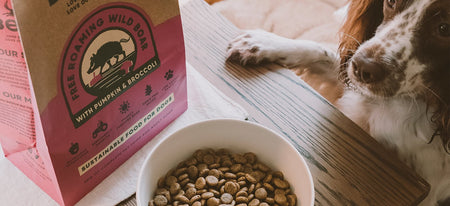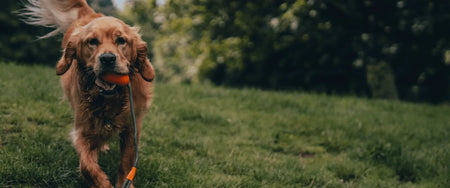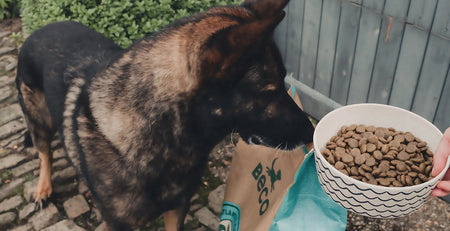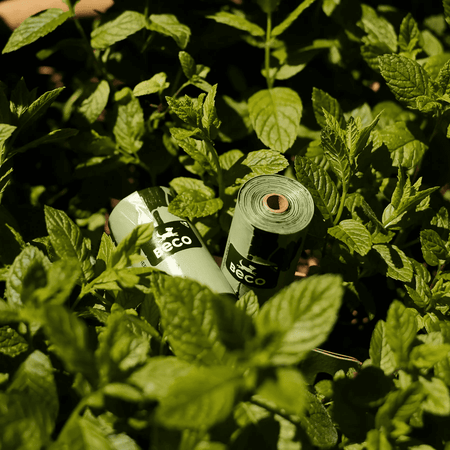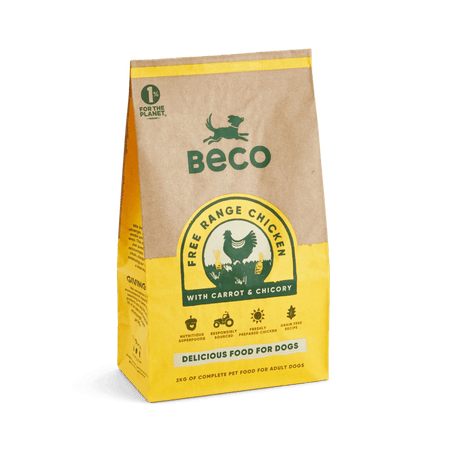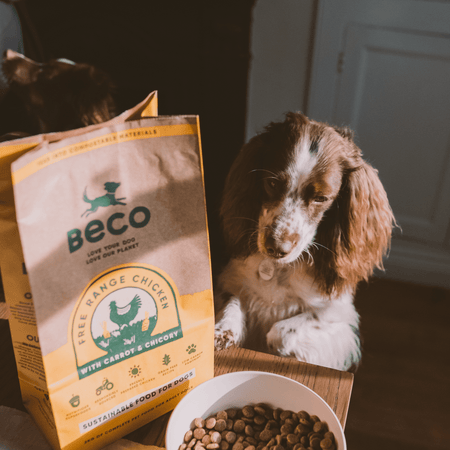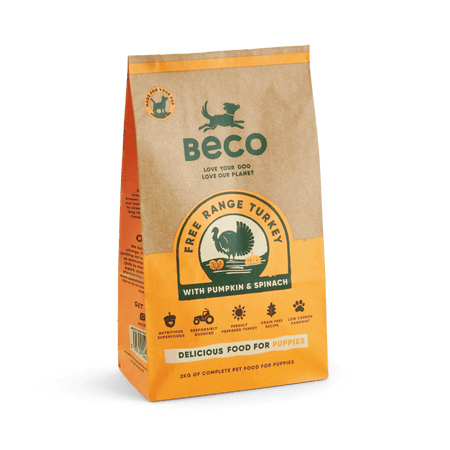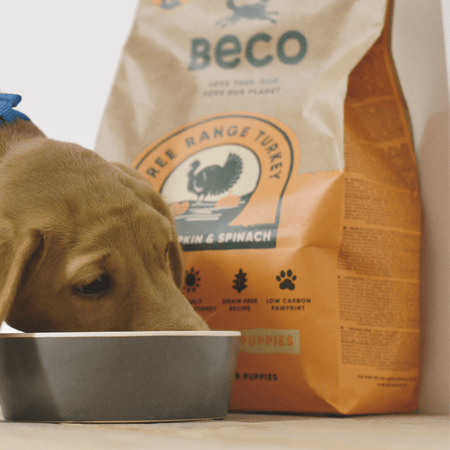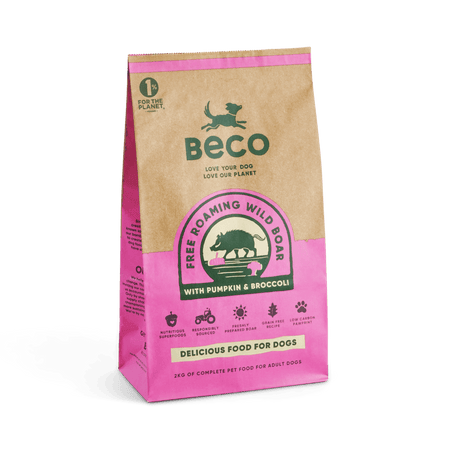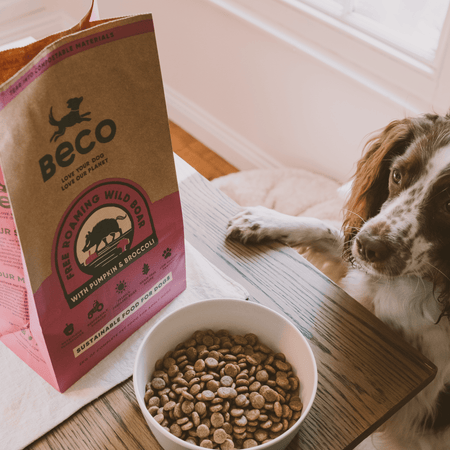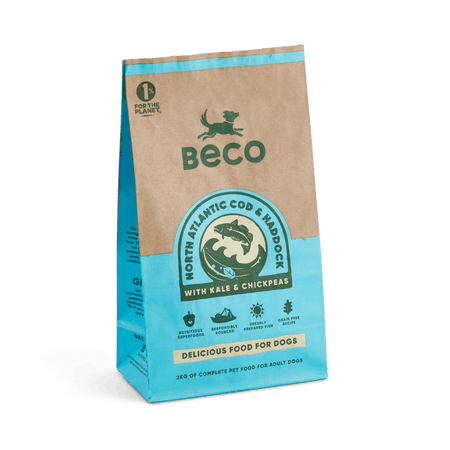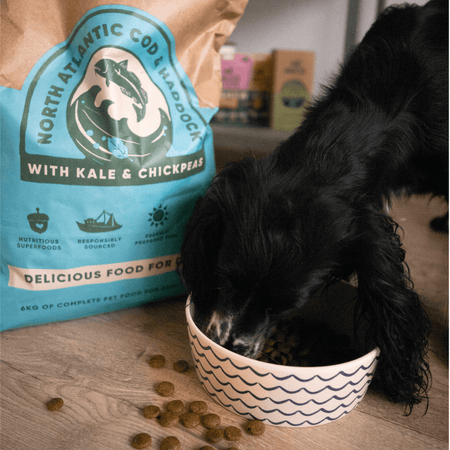Food is always a hot topic and recently people have become increasingly aware of the impact our diet has on our health and the environment.
One of the major talking points: how do we eat food in its most natural form? This means food choices are constantly up for debate. This mind-set has a big say in what we choose to eat, and now, what we buy our dogs.
It’s fantastic to see so many owners passing their healthy diets on to their dogs. It's important to feed them the right stuff. However, as with all things relating to diet, there’s a lot of confusion as to what the best food options are.
There is a dog food debate in full swing. The major question is: should I be feeding my dog grain free food? So, here’s our attempt at explaining everything you need to know.
At a glance
Going grain free can result in significant digestive and skin issue improvements
Not all grain free dog foods are what they seem (Do your research!)
Gluten and grain free are very similar, but not the same
Dogs get far more nutritional value from a diet without cheap grains
Not all grains are bad - unprocessed, ancient grains, such as rice and wheat are ok
Look for the telltale signs of your dog reacting to grain
Eliminate commercial ingredients and choose a novel protein source for dogs with allergies
The rise of grain-free
Some of the most common grains in dog food are wheat, rice, maize and barley and rye.
Grainless dog food is a popular choice among owners and its rise coincided with our very own diet changes – most notably the introduction of gluten-free choices. Dogs followed and grain-free food quickly became a common food choice.
Grain-free and gluten-free dog food is much more than a fad. It’s a great choice for pups growing up and for dogs that have an allergy or need to improve their digestion.
However, not all grain-free food is made the same and just like grain-dog food, you get grain-free options with nutritious goodness and other without.
Both owners and vets have also reported that by avoiding gluten going grain-free, they have noticed significant improvements in dogs that suffer from digestive issues and skin complaints. In fact, the British Veterinary Association estimated that 70% of non-routine appointments were for these cases alone.
On this evidence, surely grainless foods are a great alternative? In our eyes, yes. The issue is, when it comes to grain free options there’s plenty of mixed messaging and information that’s been misinterpreted.
We thought it’d be a good idea to answer a few questions and clear up some of the confusion surrounding it all.
Grain-free vs gluten-free: what is the difference?
Gluten-free and grain-free are two terms that are often used interchangeably, however, they do not mean the same thing.
Gluten is a protein found in grains such as wheat, rye and barley. Dogs with a gluten allergy must avoid these grains.
If a dog goes on a grain-free diet, then it automatically goes on a gluten-free diet because all grains, including glutenous ones, have been eliminated. However, a dog on a gluten-free diet is not necessarily on grain-free diet, as they might still be consuming grains without gluten, such as rice.
Is grain-free food better for your dog?
Despite the above stats, grains are not inherently bad for most dogs (except, of course, for those with gluten allergies!). Although people maintain that dogs, like their wolf ancestors are carnivores, most experts agree that domestic dogs are omnivores can digest starches such as grains.
However, the highly-processed grains used as cheap fillers in many dog foods are bad for dogs and can cause problems with a dog's digestion.
This is why we think grain-free food is a great choice. We believe dogs get far more nutritious value from ingredients such as quality protein and vegetables.
On top of a grain-free diet, we believe a high % of fresh or freshly prepared meat and fish is crucial, topped up with nutritious vegetables, pulses and botanicals. This isn’t because grains are necessarily bad, but because dogs benefit from ingredients with vitamins and fibre that naturally aid gut health, support the immune system and much more.
Think of it like this, dogs in their most natural state are used to eating their prey – stomach contents and all. Herbivores have fruits, berries, vegetables and some grains, which dogs happily gobble up.
While dogs are omnivores, the main taste they’re after is fresh meat. We think modern day dog food should stay true to its ancestors’ roots – a diet predominantly free of grains.
Signs that your dog is reacting to grain
Gluten and grain can be noted in weight gain/bloating, as grains like wheat increase water retention. Another tell tale sign of an intolerance to grain, is an orange type staining of fur in between and around the dogs metacarpals/toes as the body tries to excrete the toxins.
Is it the right diet for puppies?
Yes, grain free is a great option for young pups. These early stages have a big say in their development and growth down the line. As long as grain-free meals selected have the correct nutrients and minerals, they are a great option for dog owners and their new pups.
Is grain bad for allergies?
If your furry friend is susceptible to allergies, we suggest looking at our blog on hypoallergenic dog food.
Although at Beco all our food is grain free and hypoallergenic, that does not mean that all brands selling grainless food will be hypoallergenic. Grain-free food reduces the chance of reactions, due to grains being a common cause of dog allergies, however they won't necessarily be completely hypoallergenic.
If, your dog does have allergies make sure you eliminate typical commercial ingredients like corn, wheat or soy. Feeding them novel proteins, as this narrows down what could be causing them to have reactions, can also help. A novel protein, is a protein that is not commonly used, such as:
Wild Boar
MSC Cod & Haddock
Tuna
At Beco we provide all of these options and they are single meat source. Boar in dog food used by other brands, but often mixed with other widely used meats, so it is no longer novel. We also offer, the only kibble food on the market to use all white fish.
Too much protein in grain free diets
Grain-free dog food often includes large quantities of protein, as brands choose protein over other nutritious fillers.
Foods exceeding 35% crude protein, can be too high in crude protein for dogs with a sensitive stomach. Dogs biologically, can only absorb a certain amount of any nutrient, in one given meal. An excess of protein and the inability to digest this in one sitting, could also be the cause of excessively runny eyes, loose stools or both. Which is why it is important to use a biologically appropriate amount of fresh meat, that cooks down to an easily digestible amount of crude protein.
Are grain foods bad for your dog?
Not all grains are the same and equal when it comes to the nutritional value they deliver to dogs, and a lot of dogs do well on dog foods that contain grain. For example brown rice is better than a cheaper grain like wheat which is often used as a filler in dry dog food to bulk it out. So it’s not a matter of all “grain-free” foods being good, and all foods containing “grain” being bad, the variants of grain, and quality of other ingredients play a big part. That said, whilst some grains are better for dogs than others we believe there are more nutritious vegetable ingredients such as potato, broccoli and carrots that can be used instead of grains. Vegetables like broccoli, carrots, and pumpkin are great prebiotics, types of dietary fibre that feed the friendly bacteria in your dog’s gut. This helps your dog’s gut bacteria produce nutrients for their colon cells and leads to a healthier digestive system, and we believe often a happier and healthier dog.
The most important thing is finding a dog food that your dog does well on, and you believe in. Dogs are unique. They come in different shapes and sizes, which means there’s no one size fits all food plan. It’s important you adopt a balanced diet that gives your dog the nutrients, proteins and minerals they need.
It’s also worth remembering though that just because it’s grain-free dog food, it isn’t necessarily better. Quality ingredients make quality dog food. So, if it’s grain-free but then the dog food is using a meat meal instead of fresh meat, the nutritional gains in not using cheap grains, would be negated by the cheaper meat source. The best advice we can give owners is to be cautious and thorough when buying for your dog – just like you would when buying for yourself. Make sure you read the composition on the back of the bag carefully, and make sure the first 2-3 ingredients are of high quality. It, is also important to mention, that this must all be combined with gentle cooking methods to capture the nutrition, for the dog to utilise as much of it as it can. It’s the mix of single meat source, novel protein options, freshly prepared, quality meat with low temperature cooking methods that set the quality of grain-free dog food apart.
Either way, whatever your decision - grain or no grain, here are some key pointers we would suggest focussing on.
Freshly Prepared Meat
Single Meat Recipe if possible
Novel Meat Options
Sustainably free range farmed or sustainably wild caught meat
Locally sourced veg & botanicals
Food which is optimised for bioavailabilty
Simple recipes to be gentle on tummies
Veg & Botanicals for gut health
Biologically appropriate levels of crude protein
Traceability of ingredient to source
Where can I buy the best grain free dog food?

At Beco, we provide a wide range of freshly prepared grain free wet and dry dog food. We’re big believers in tasty flavour, sustainably sourced produce and foods that provide our dogs with everything they need to keep them happy and their tummies healthy.
Our recipes are cooked at temperatures between 90 – 100ºC. This locks in all of the nutritious goodness, as opposed to meat meal foods that are usually cooked between 250 and 350ºC.
From wild boar, to free range chicken and carrots, or our sustainable tuna with pumpkin and peas, our wet foods cater for dogs of all shapes and sizes. Take a look here to see our full collection of healthy grain free dog food – a carefully selected range that leaves your dog spoilt for choice.

